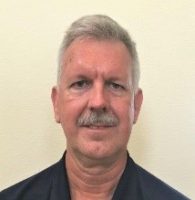
It’s Back to Fundamentals to Review Your Financial Plan Periodically
When my son was eight years old I was asked to be a coach for his basketball team. I didn’t know anything about coaching basketball, but I was paired with someone else who did. Glen played college basketball and explained that every season, no matter what team he was playing on, the coach always started with practicing fundamentals. We had drills to dribble, pass, and shoot.
What would have happened if the boys had started playing ball without learning the fundamentals? I suspect it would have been haphazard with lots of shooting for the basket without much coordination between the players.
My wife and I did this for years with a target date, investing 10 percent from every paycheck. But we did not really know if our progress was fast enough. Even using financial magazine statistics to compare our net worth with others was meaningless because most people in this country are not investing enough for their retirement.
HERE IS WHAT MATTERS
For many people their retirement “plan” is like shooting for the basket without practicing the fundamentals. They keep putting money aside and hoping they are saving or investing enough. They may be heading generally in the right direction, but do not have a specific target or goal to know how well they are progressing.
What really matters is not “are we keeping up with the Joneses”, but rather will we have enough for us to achieve our retirement dreams. Are we investing enough and are our investments performing well enough?
I saw a lady have to give up a home she could no longer afford when her husband passed away. They were heavily dependent on both of their Social Security checks, and when he passed her remaining benefit was sharply reduced. She could no longer afford her house payment. This could have been prevented by planning early and following the plan.
WHAT IS THE SOLUTION?
The solution is relatively simple.
- Set aside at least 10-15 percent of pre-tax income and invest it according to your written plan.
- Review your written financial plan at least annually, answering the following questions.
- What is your WHY? What drives your retirement dreams? For most people this boils down to 3 things:
- Ability to spend time with friends and family
- Travel
- Give to charity
- What is your target retirement date? This is not necessarily when you will retire, but want to have the financial ability to retire. Many people continue to work because they truly enjoy it. For some it is with a reduced workload, giving them more time and flexibility to enjoy their WHY.
- How much cash flow will you need each month? This should be split into fixed costs, such as housing and groceries, and variable costs such as travel that are discretionary. It should also cover the items listed under your WHY.
- What cash flow do you currently expect to have from various sources? Be sure to include any available pension, Social Security, real estate, and investment income.
- How much more cash flow do you need from additional assets? How much is needed to cover the fixed expenses? And how much is needed for the additional desired items?
- What are the net worth and cash flow of the assets you currently have? Do not include your personal residence as it does not produce income but does add liabilities such as taxes and insurance. For simplicity, I like to assume cash can be pulled out at a rate of 5-percent of the total net worth. This can be conservative, depending on the investments.
- What additional or different assets are needed to provide the cash flow desired?
- Identify a team to help you acquire the assets needed.
- What is your WHY? What drives your retirement dreams? For most people this boils down to 3 things:
By following this solution and sticking to fundamentals, my wife and I were able to have confidence in our ability to retire and enjoy the life we planned. Not only that, but we retired early to enjoy more years of good health and more time being physically active.
Just like the basketball players practice their fundamentals regularly, we review our Personal Financial Statement monthly, giving my wife more confidence in our ability to generate cash flow. And the time flexibility has enabled me to focus more on physical activity and shed 35 pounds.
I invite you to join our Attune Club, where you can receive more information to guide your investment plans. You also get direct access to us, so we can answer your questions.

Mike is a retired aerospace engineer with a passion for real estate investing and teaching financial literacy. He lives with his wife in Daytona Beach, Florida.

